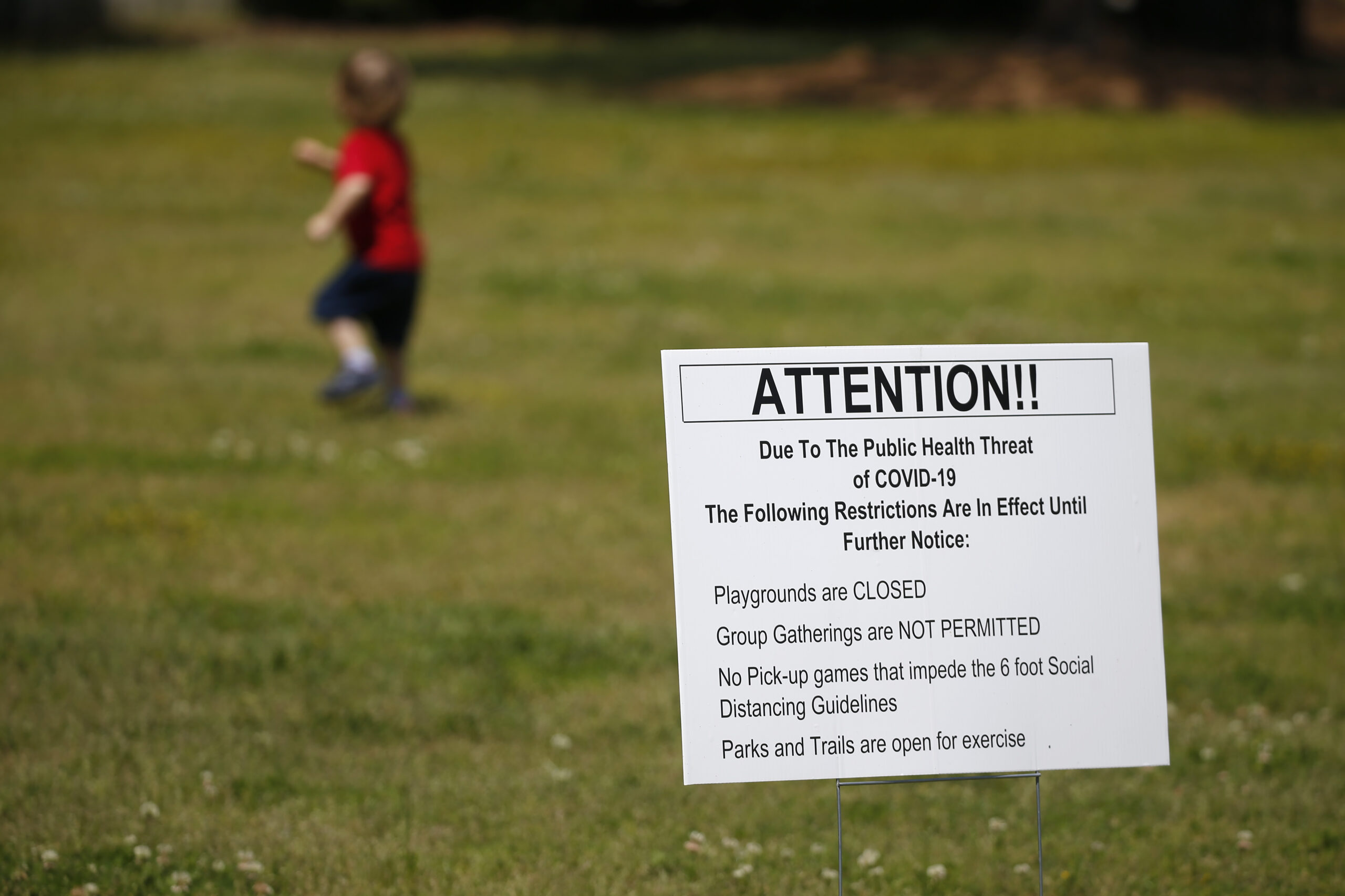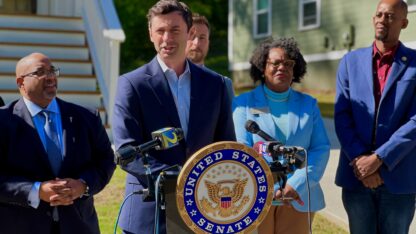‘Variation’ In Stay-At-Home Orders Seen Throughout The South

A child plays near a sign advising people that the playground is closed and social distancing is required Thursday, April 9, 2020, in Rutledge, Georgia.
John Bazemore / Associated Press
The coronavirus outbreak has put a spotlight on the measures state governments have taken to slow the spread of COVID-19.
Georgia, along with neighboring states with stay-at-home orders, Florida, Alabama, Tennessee, North Carolina and South Carolina, have varying guidance on what is classified as “essential activities” that go beyond just letting people go to the grocery store or hospital.
“With respect to any policy or rule-making activity, there’s tremendous variation across the states. But one thing that several states have in common is that under states of emergency, governors are given some pretty extraordinary powers,” said Michael Fix, politics associate professor at Georgia State University.
For example, Georgia Gov. Brian Kemp has faced backlash for his decision to let people go to beaches, as long as visitors are 6 feet apart, during this time.
In an effort to curb visits to these places, Kemp added a ban for short-term rentals to last through the rest of the “shelter-at-home” order, until April 30, while the beaches remain open.
Georgia also prevents the limiting of firearm and ammunition sales during this time, along with some other Southern states, such as South Carolina, which is one of the latest states to put an order in place, and Alabama.
“Georgia, of course, is a state that has a really strong support for gun rights. And so we see language like this or language in other states with similar gun rights culture, specifically defining gun stores as essential businesses, whereas in states that have less support for gun rights …” Fix said.
Pro wrestling is still allowed as an “essential business” in Florida, as well as swimming while social distancing.
“We’re still seeing a lot of variation. And I think a lot of that has to do with local factors, local pressures … how quickly governors are taking the situation seriously,” he said.
When it comes to some states in the Southeast, attending houses of worship are protected. Going to religious services is labeled as an “essential activity” in Florida’s order. Georgia’s order, too, allows residents to go to houses of worship — where social distancing rules are followed.
Alabama is letting weddings, funerals and other services still go on, as long as there are 10 people or less. North Carolina is permitting funerals with up to 50 attendees to happen, as well, “in an effort to promote human dignity and limit suffering,” according to the state’s executive order.
Fix said that this is “a time when we need clarity.” A solution for those who may be unsure about what they can do in their state, based on how the order is written or what neighboring states allow, he said is to employ a common-sense approach.
“The repercussions are dangerous in a situation like a pandemic, is a time when we especially need clarity in our guidelines,” he said. “I think common sense will get us so far. I think just trying to do the right thing will get us so far, but it may not get us far enough.”








